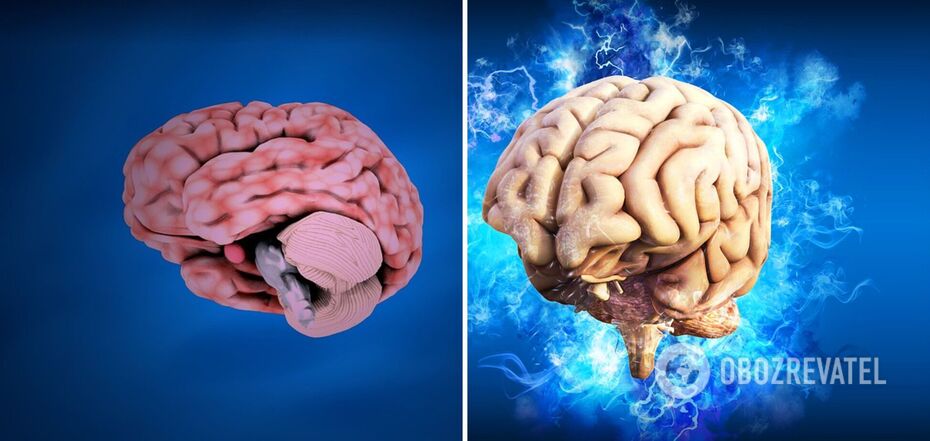Society
What you need to know about multiple sclerosis: primary symptoms named
The central nervous system is one of the most important in the human body. It coordinates the connection of all human organs and systems with each other. Disorders of its work lead to many disorders and chronic conditions. One such is multiple sclerosis, a progressive immune-mediated disease during which the defense system mistakenly attacks its own body parts.
Severe forms of multiple sclerosis can lead to vision loss, paralysis, and decreased brain function. Fortunately, when diagnosed early, the disease is correctable. Healthline, in consultation with neurologist Heidi Moawad, M.D., tells us what to look out for so you don't miss out on the disease.
In fact, multiple sclerosis is not a simple disease, with symptoms that can vary and be unpredictable than complicate the diagnosis. The primary manifestations are usually related to damage to the protective coating of the nerve, myelin. This condition is exposed to medications, occupational and physical therapy.
In addition, doctors name other basic complaints that may indicate its development.
Tingling and numbness
Because multiple sclerosis affects the brain and spinal cord and affects the sensory nerves, there is a decrease in sensitivity when you touch it, which can affect your ability to walk and do things with your hands.
To avoid missing the onset of the disease, don't ignore the numbness and tingling that usually appears in the face, fingers, and toes.
Vision problems
Inflammation can develop on the optic nerve and lead to eye problems, such as blurring or loss of vision. If the disease has affected the cranial nerves or the brain stem, double vision or problems with eye mobility may occur.
The main symptoms of multiple sclerosis include:
Neuritis - inflammation of the optic nerve;
Nystagmus - unsteady eye movements;
Diplopia - double vision.
You may not notice changes in your vision right away, so you should see a doctor for an examination when you have your first complaints.
Balance and Dizziness
People with multiple sclerosis often experience mild dizziness, especially with sudden changes in body position. This can cause balance and coordination problems and contribute to impaired gait.
Weakness and fatigue
Fatigue is due to lesions in the brain and inflammation, and weakness develops due to demyelination or muscle atrophy.
Usually starting in the legs, weakness can occur suddenly and persist for weeks before improving. Fatigue may occur intermittently or develop into a chronic syndrome.
Pain and cramps
Chronic pain and spasms may occur due to demyelination. In addition, neuropathic pain, an acute condition that occurs when signals to the brain are not transmitted properly, may also occur with multiple sclerosis. Examples of such a condition are itching and pain in the extremities, trigeminal neuralgia, etc.
In multiple sclerosis, muscles become stiff and tense, leading to spasms and uncontrollable painful movements or, conversely, the inability to straighten limbs. In the later stages of the disease, there may be problems with motor skills, swallowing, and speech.
Cognitive impairment and emotional changes
Many patients with multiple sclerosis experience cognitive and emotional changes over time and as the disease progresses:
Memory problems;
Reduced duration of attention span;
Difficulties with the organization.
In addition, such people are prone to depressive states. Excessive irritability, mood swings, and sometimes bouts of uncontrollable laughter and crying may also occur.
Bladder and bowel dysfunction
This symptom is common in people with multiple sclerosis and includes:
Frequent urination and strong urges;
Inability to retain urine;
Inability to urinate.
Bowel problems are less common but can manifest as constipation, diarrhea, and loss of stool control.
Sexual dysfunction.
Sexual dysfunction can also occur with the development of multiple sclerosis. This is because the physical desire is formed in the central nervous system, which is attacked by the disease. In addition, it is affected by constant fatigue, spasticity, and emotional state.
The above symptoms, without further examination, cannot indicate the development of multiple sclerosis. Since the disease manifests itself in different ways, in addition to these, some patients will have complaints of hearing loss, tremors, seizures, breathing problems, and loss of taste.
A consultation with a neurologist and a thorough examination is necessary to make a diagnosis. In addition to a face-to-face examination and interview, it may include:
A neurological examination to evaluate brain function:
Performing visual tests;
Magnetic resonance imaging to obtain images of the brain;
Spinal tap to examine fluid around the brain and spinal cord.
As you can see, multiple sclerosis is a serious disease that is currently completely incurable. Symptoms may appear suddenly and disappear for a long time, but relapses are unpredictable. That is why in the presence of warning signs do not hesitate to go to the doctor, because early diagnosis gives a good chance to successfully prevent the rapid progression of the disease.
Previously OBOZREVATEL told about the need for timely diagnosis of multiple sclerosis. Kateryna Misyura, the founder of the patient organization "Ukrainian Community of People with Multiple Sclerosis "UCMS", noted that life with the disease can and should be full.



























